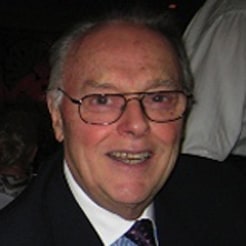
“Liberating” Leadership: Dream Maker
“If our actions inspire others to dream more, to learn more, to do more, and become more, then we are leaders.” (John Quincy Adams)
Quite possibly the most influential theorist and practitioner on “Liberating” leadership over the past 60 years has been Warren Bennis, an American scholar, organizational consultant and author, and a man widely regarded as a pioneer of the contemporary field of leadership studies. He passed away in 2014, but not before leaving us with a plethora of concepts, stories, and principles, related to our topic here.
His basic principles regarding “Liberating” leadership are:
- Leaders are made, not born.
- Leadership is like beauty
- Leading means deeply affecting others.
- A leader is self-aware.
- Curiosity and risk-taking make a leader.
- A leader sees the big picture.
- The leader does right.
To apply these principles, Bennis was convinced that the “Liberating” leader had to possess:
- Humility: For Bennis, becoming a “Liberating” leader isn’t about making ourselves popular or famous. It’s about leading team members to become better than they are without us, and giving them the credit for their results. In other words, the “Liberating” leader is an equal member of the team, just one with the role of a leader.
- Humanism: “Liberating” leaders for Bennis can’t just see in black and white, because humanity operates within shades of grey. That’s why “Liberating” leaders develop a humanistic perspective, and make an effort to see where their team is coming from, because that’s how a “Liberating” leader can help guide the team members to where they need to go. That doesn’t mean all decisions, ethics, or moralities aren’t defined, but it does mean that many circumstances don’t need an equal level of definition.
- Democratic Performance: “Liberating” leaders, who incorporate the opinions and perspectives of their entire team, he proclaimed, would be more effective over the long term, from those who dictated circumstances.
Dr. Bennis was convinced that an egalitarian age – the age of today – requires a new style. Leaders can no longer crack the whip and expect people to jump through hoops. They need to perform more like mentors and coaches, than old-fashioned sergeant-majors. Top-down leadership not only risks alienating co-workers. It threatens to squander the organization’s most important resource: knowledge. He professes that there was no point in employing knowledge co-workers, if we are not going to allow them to use their knowledge creatively – “Liberally.”
He firmly believed that leadership is not a set of genetic characteristics, but rather the result of the lifelong process of self-discovery. That process enables “Liberating” leaders to become fully integrated human “becomings” (Carl Rogers’ expression), who know themselves and bring out the best in others.
One of Bennis’ most famous disciples was Bill George, currently professor of management practice at Harvard Business School since 2004. He is the former CEO of Medtronic, a medical device company headquartered in Dublin, Ireland. Their operational headquarters is in Fridley, Minnesota, where Medtronic is the world’s largest stand-alone medical technology development company. Bennis was fond of saying that he had Medtronic “in his heart,” and then would describe how his defibrillator saved his life half a dozen times – just like me!
Our next champion of “Liberating” leadership is Marshall Goldsmith, a practical, insightful and inspirational thought leader and executive coach, whose mission is to help successful leaders get even better, by achieving positive, lasting change in behavior: for themselves, their people and their teams. Goldsmith is recognized by the American Management Association, as one of 50 greatest thinkers and business leaders, who have impacted the field of management and leadership over the past 80 years.
Goldsmith’s principles of “Liberating” leadership, can be summed up in his list of actions to be performed by one who practices:
- Thinking Globally
- Appreciating Diversity
- Developing Technological Wisdom
- Building Partnerships
- Sharing Leadership
- Creating a Shared Vision
- Developing People
- Achieving Personal Mastery
- Encouraging Constructive Dialogue
- Demonstrating Integrity
- Leading Change
- Anticipating Opportunities
- Ensuring Customer Satisfaction
- Maintaining a Collaborative Advantage
- “Responsibilizing” People
Goldsmith teaches us that “Liberating” leaders must provide a favorable environment, in which people are encouraged to grow. Finally, “Liberating” leaders encourage co-workers to create their own dreams.
- About the Author
- Latest Posts
Vice President Emeritus for Learning Technologies Donald Smith, Ed.D, CPT, headed ME&A programs in learning, leadership, and performance enhancement. He stayed with the firm in his retirement, bringing more than 65 years of experience as a coach, designer, facilitator, evaluator, manager, educator, and organizational change architect in more than 50 countries. He is affectionately known as ME&A’s MENCH.


